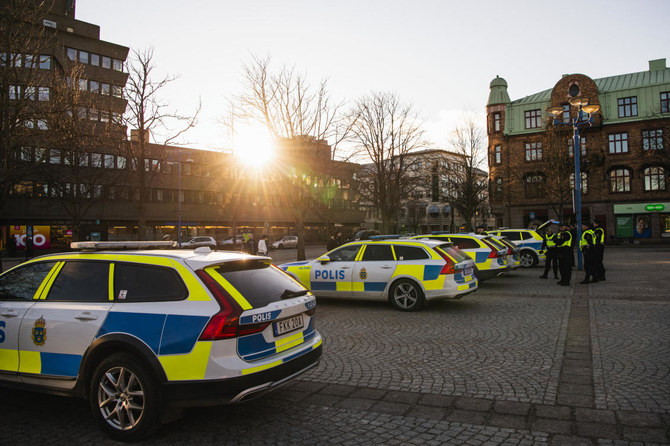SEOUL: Seoul is preparing to take legal action against Iran over the seizure of a South Korean oil tanker in the Strait of Hormuz, the Foreign Ministry said on Wednesday.
The South Korean-flagged vessel MT Hankuk Chemi was traveling from Saudi Arabia to the UAE when it was intercepted by Iran’s Islamic Revolutionary Guard Corps (IRGC) on Monday and taken to the port of Bandar Abbas.
While officials in Seoul say they are seeking a diplomatic solution to the standoff, the South Korean navy’s Choi Young destroyer arrived in waters near the Strait of Hormuz on Tuesday. The Defense Ministry said the destroyer’s presence is to “ensure the safety” of Korean nationals.
“A legal action is being considered as one of the options we could take to resolve the situation,” South Korea’s Foreign Ministry said in a report submitted to the national legislature.
According to the Iranian side, the ship, which was carrying 7,200 tons of ethanol, had violated environmental protocols — claims that the vessel’s owner has denied.
The Korean ministry said it was verifying key facts regarding Iran’s claims about environmental pollution, whether the vessel was sailing in international or territorial waters, and whether the seizure was carried out in line with international law.
“As long as there is no demonstration of ‘an act of deliberate and grave contamination’ that would disqualify the ship’s innocent passage, we find that no violation of international laws has occurred,” it said. “We are exerting efforts to resolve this issue while keeping all options on the table.”
A Foreign Ministry delegation has been sent to Iran to negotiate the release of the ship and its crew. First Vice Foreign Minister Choi Jong-kun is also scheduled to depart for Tehran next week.
Twenty crew members, including five South Korean nationals, were on board at the time of seizure. The Iranian ambassador to Seoul, Saeed Badamchi Shabestari, told Korean reporters on Tuesday that “all of them are safe.”
The tension comes as Tehran has pressured Seoul to release about $7 billion in revenue from oil sales that remain frozen in South Korean banks under tighter US sanctions imposed by the Trump administration against Iran.
Seoul officials confirmed earlier that the government had been in talks with Tehran and Washington to use the frozen money to purchase coronavirus vaccines for Iran.
Shin Beom-chul, chief researcher at the Korea Research Institute for Economy and Society, told Arab News that the Iranian move is a desperate bid by Tehran to get recognition from the incoming Biden administration in the US.
“The seizure of a South Korean oil tanker is a move aimed not at South Korea but at the United States,” Shin said.
“Tehran is sending a clear message that it can ratchet up aggression in the region any time, while the issue of frozen money in South Korea is just part of the Trump administration’s financial sanctions.”
“In a prolonged confrontation with South Korea, Iran will be pressured more and more by the international community, and Iran knows this for sure,” Shin said.
























